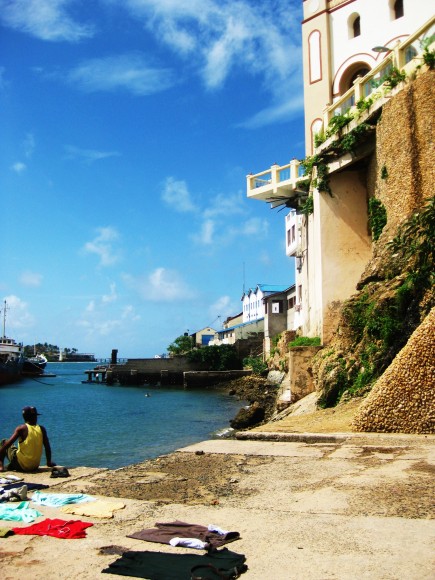A recent experience brought to life for me some of the issues facing developing countries trying to improve tax collection. I have lots of family in Kenya, and a few days ago, my dad received the news that a cargo of furniture and other household goods that he’d shipped over was about to arrive at the port. To my surprise, he promptly booked a plane ticket to Kenya, and explained that he thought it might be cheaper for him to fly to Kenya to try ot get it to Nairobi quickly than to leave the container at the port – as he would be charged high costs for each day that he left it there. Evidence suggests these extra costs can mount up to over 40% of total logistics costs.
But before I began lamenting Kenya’s trade policy, I recalled a seminar that I’d attended a few weeks ago at the Foreign and Commonwealth Office. The seminar was entitled “Transparency: Tackling Poverty at its Roots”, and was opened by Mark Simmonds, the Minister for Foreign and Commonwealth Affairs, and chaired by Michael Anderson, the Prime Minister’s Special Envoy for the UN Development Goals. 200 civil servants from all over Whitehall attended, and others from Moscow, Paris, Cape Town and Kinshasa dialled in.
I had gone along to the seminar to hear more about the rationale for the UK’s plans to promote transparency by governments and companies at the G8 Summit in June this year. I wanted to know whether the panellists thought transparency could really reduce poverty in developing countries.
During the seminar, one of the panellists Paul Collier, an economist most famous for his book The Bottom Billion (though my personal favourite is Wars, Guns and Votes) gave an unusual explanation for why he thought transparency was so critical to poverty reduction.
He began by noting that many developing countries, particularly in Africa, impose high trade tariffs, duties and other costs at their ports. This is why my dad had to rush to Kenya. However, Collier explained that this isn’t just because the countries don’t like trade or want to protect their local industries. He said it often comes down to the fact that trade taxes are easiest to track and collect compared to other types of tax, such as income and value-added taxes. Many countries have a narrow tax base, which in turn creates an incentive to rely on trade tariffs and duties to meet their spending needs.

Collier therefore suggested, rather than pushing such countries to reduce their tariffs, that they should be helped to raise revenues from other sources. And a key means could be more transparency by companies.
Many large companies often have complex structures. These exist for many good management reasons but they can also be associated with tax avoidance. Though not illegal, aggressive tax avoidance indicates some effort to circumvent norms and rules put in place by countries for social benefits. Complex, opaque company structures can also be associated with wrongdoing, such as corruption and money-laundering (also known as “illicit flows”).
Coordinated action by G8 countries to increase transparency around the ownership of companies could help reduce the potential for tax evasion and wrongdoing. Coordinated action could also help identify when companies aren’t paying enough taxes. This will mean that developing countries have the chance to collect more company taxes and reduce their incentive to rely on trade-related revenues. The UK Prime Minister argued in a speech in Davos earlier this year that making tax more fair and predictable can be good for business – creating a level playing field and providing governments with more tools such as cheaper trade to enable the private sector to grow.
My colleagues in HMT, BIS and DFID are currently considering, along with the UK’s G8 partners and other stakeholders, the best mechanism for achieving greater transparency by companies and governments – for example, how information should be gathered and to whom it should be made available. If you have any views, please set them out in the comments below!
It’s worth also noting that over the weekend, DFID’s Secretary of State Justine Greening announced that the Global Partnership for Effective Development Cooperation will, at its first-ever Ministerial later this year, aim to build consensus beyond the G8 on actions to help developing countries raise more tax.
In the meantime, I’m hoping my dad manages to pick up his goods at the port in Kenya soon. And I’m hoping there will be more seminars to help me and other policy makers better understand how agreements by the G8 and Global Partnership can really make a difference to development.
